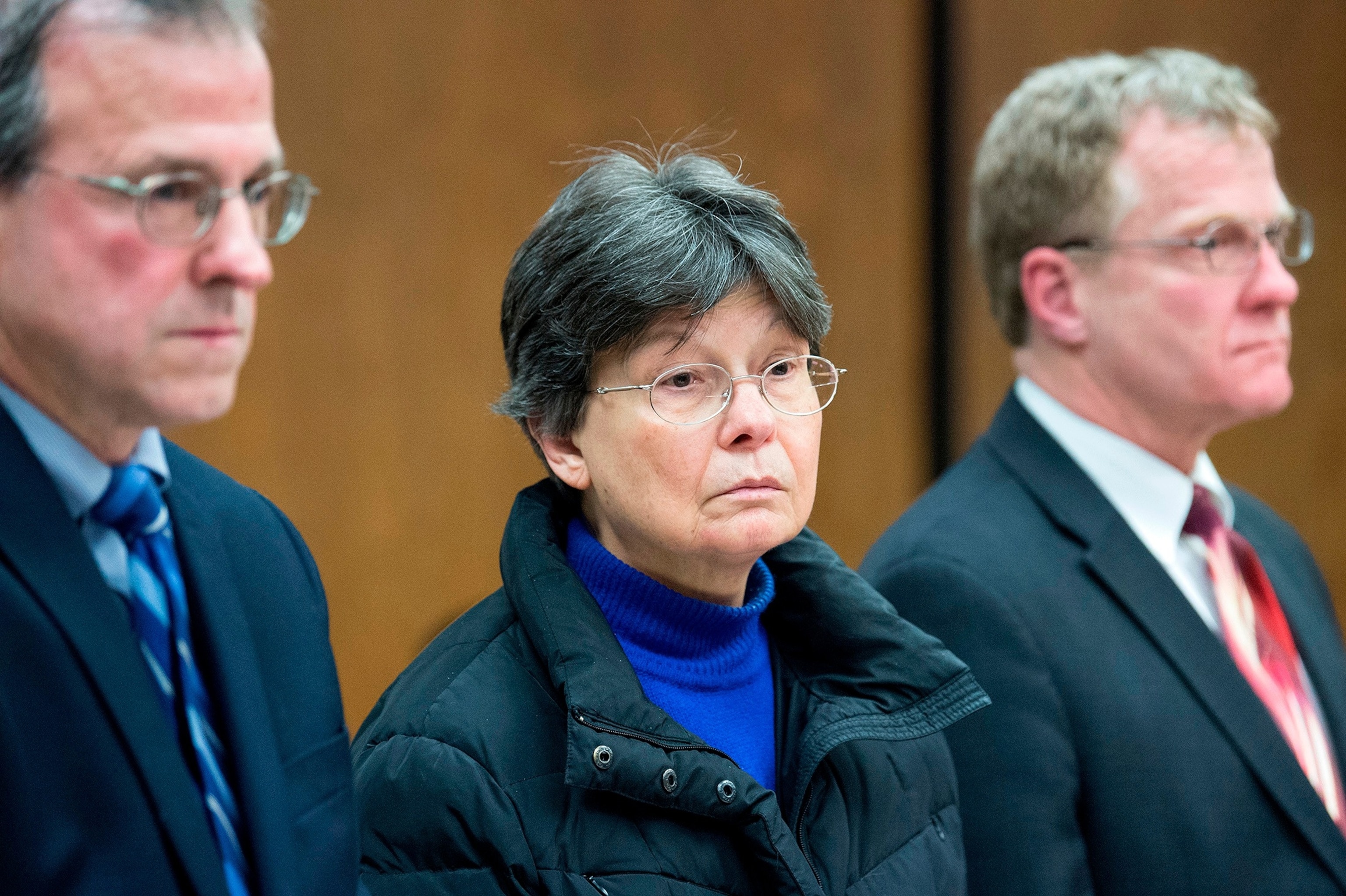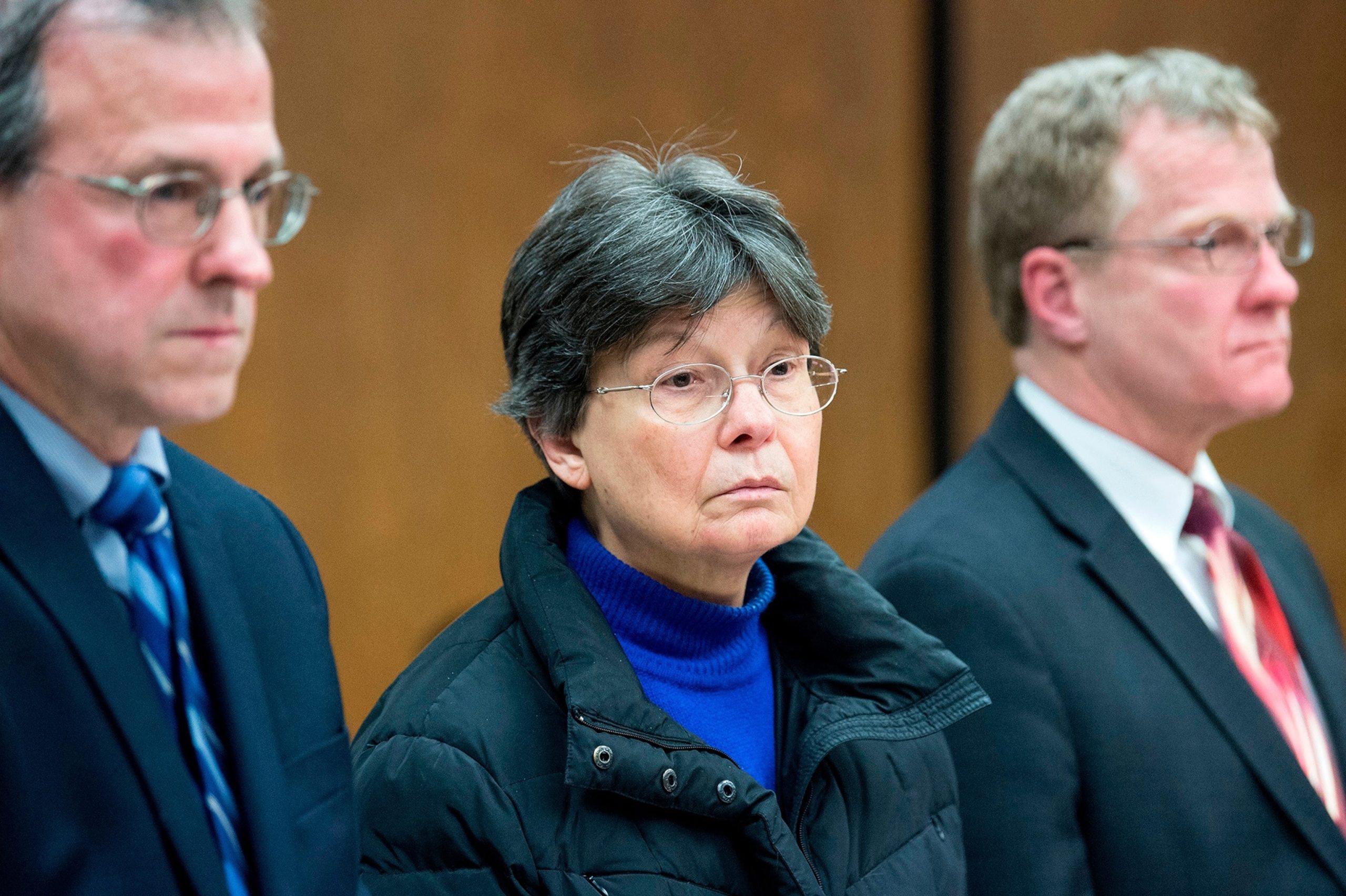A Connecticut woman was found dead at her home on Wednesday, hours before she was scheduled to be sentenced for killing her husband.
Linda Kosuda-Bigazzi, 76, pleaded guilty to first-degree manslaughter in March in the 2017 death of her husband, 84-year-old Pierluigi Bigazzi, according to the Connecticut Division of Criminal Justice. Police found the University of Connecticut Health doctor and professor dead in the basement of the couple’s Burlington home while responding to a welfare check call from his employer, who had not heard from him for several months, prosecutors said.
Kosuda-Bigazzi also pleaded guilty to first-degree larceny for continuing to receive her husband’s pay following his death, according to the Connecticut Division of Criminal Justice. Investigators found that checks from her husband’s employer were deposited into the couple’s joint checking account from his death in July 2017 until the discovery of his body in February 2018, prosecutors said.

In this file photo, Linda Kosuda-Bigazzi, center, appears at Bristol Superior court, accused of murdering her husband, Dr. Pierluigi Bigazzi, in Bristol, CT, Feb. 13, 2018.
Patrick Raycraft/AP/FILE
Kosuda-Bigazzi was set to be sentenced to 13 years in prison under the plea deal, according to The Associated Press. Her hearing was scheduled for 2 p.m. ET on Wednesday.
Her death was “not anticipated,” according to her attorney.
“We were honored to be her legal counsel and did our very best to defend her in a complex case for the past six years,” her attorney, Patrick Tomasiewicz, said in a statement. “She was a very independent woman who was always in control of her own destiny.”
Connecticut State Police said they have opened an “untimely death” investigation in the incident.
Troopers responded to her home Wednesday morning after an individual reported at approximately 10:37 a.m. ET that they were at her residence but were unable to make contact with her, state police said.
With help from the local fire department, troopers entered the residence and found Kosuda-Bigazzi unresponsive inside, state police said. She was pronounced dead at the scene.
No additional details were released by state police.
ABC News has reached out to the Connecticut Division of Criminal Justice for comment.
Kosuda-Bigazzi had been out on $1.5 million bail while awaiting sentencing.
Police found handwritten documents at the home in which Kosuda-Bigazzi claimed she had killed her husband in self-defense, according to court records.
Bigazzi’s death was ruled a homicide by blunt injuries to the head, according to the medical examiner’s office.
Bigazzi was a UConn Health faculty member in the School of Medicine for over 40 years. Kosuda-Bigazzi also worked at UConn Health from 1986 to 1998 as a science instructor and she then volunteered, helping her husband through the summer of 2017, school officials said.
The tragic case of a woman found dead before her sentencing for her husband’s murder has shocked and saddened many. The woman, whose name has not been released to the public, was set to be sentenced for the murder of her husband, a crime she had been convicted of earlier this year.
The details surrounding the case are still unclear, but it is believed that the woman was found dead in her home just days before her scheduled sentencing. Authorities are currently investigating the circumstances surrounding her death, but foul play is not suspected at this time.
The woman’s husband was found dead in their home last year, and she was arrested and charged with his murder shortly after. The trial was highly publicized, with many speculating about the motive behind the crime. Some believed that the woman had been a victim of domestic abuse and had acted in self-defense, while others thought that she had planned the murder in order to collect on her husband’s life insurance policy.
Regardless of the motive, the woman’s death before her sentencing has left many questions unanswered. Some are wondering if she took her own life out of guilt or remorse for her actions, while others are questioning if there was foul play involved in her death.
This tragic case serves as a reminder of the complexities of domestic violence and the devastating impact it can have on individuals and families. It also highlights the importance of mental health support for those involved in such situations, as well as the need for a thorough investigation into the circumstances surrounding this woman’s death.
As the investigation into this case continues, many are left mourning the loss of both the woman and her husband, and hoping for answers that may bring some closure to this heartbreaking story.



